Thailand is rarest amongst the world’s top tourist destinations. With vacation resorts across tropical beaches, mountainous landscapes, and cities, Thailand is also home to thousands of foreigners who work in international embassies or Thai businesses.
You will be amazed by the scenic wonders, beautiful people, active lifestyle, and rich tradition and cuisine. The friendliness will leave wanting to stay for as long as possible- I mean, who wouldn’t want to? But, can foreigners settle in Thailand and buy property there?
A foreigner can buy a structure or house built on land in Thailand. However, they can not directly purchase the land itself. Under Thailand’s governing laws, foreigners must enter a long lease agreement known as “leasehold” or own a private Thai business with some approval of shares in ownership.
Everyone desires to buy a piece of a tropical paradise and call it their own. However, there are common property inquiries that must be researched before you make the risky decision to invest in a foreign land. Let’s look into common property laws in Thailand!
Can A Foreigner Own Land in Thailand?

While foreigners are not generally allowed to purchase land in Thailand, there can be exemptions in some cases. For example, the most common option is for a foreigner to set up their own Thai Limited Company and own the land through that business proposition. Another way is to enter into a leasehold with the landowner (1).
Although it is known that foreigners can’t own land in Thailand, they are permitted to own a structure such as a property or a house. It is important to consider the essential components of buying real estate in Thailand and the types of Thai title deeds; criteria needed to determine the extent of the owner’s rights over the land (1). These costs are also increased with Thailand property taxes. The best advice is to use legal services and protect your interests (1).
Freehold Ownership
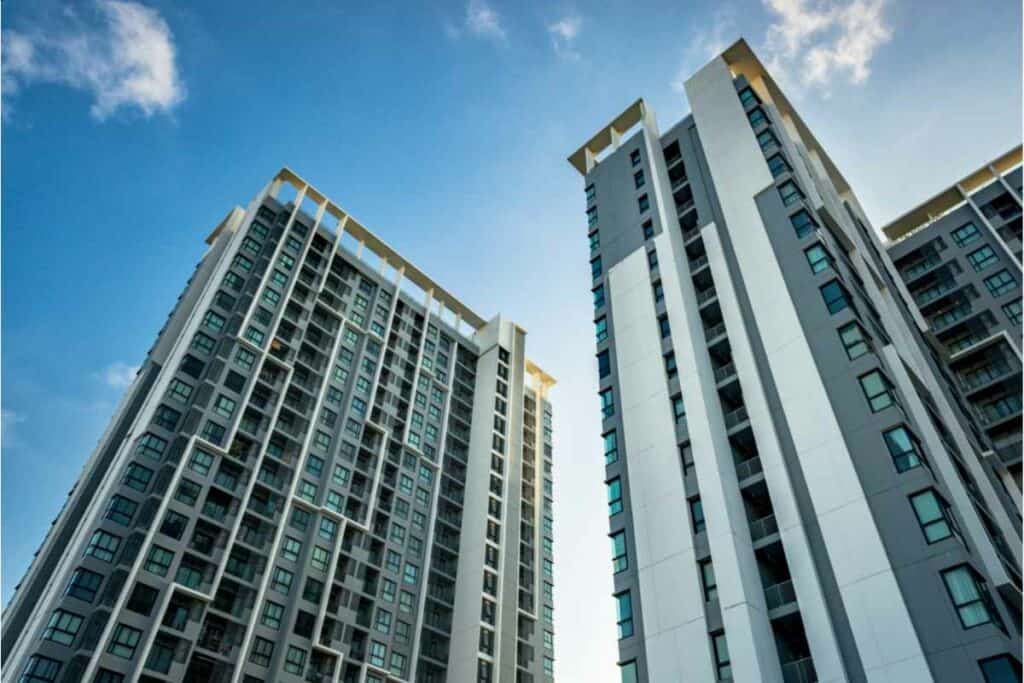
Under a threshold condominium, a foreigner can own property in Thailand. Under Thai law, up to 49% of the unit area of any property can be owned by a foreigner (3). If the Thai-owned percentage is maintained within the development, the property can legally be titled in the name of the foreigner as well; this means permanent ownership until the owner sells the condominium (3).
When purchasing a condominium, the title also comes with a fractional interest in the building and surrounding common areas- thus the reason why the foreigner would have to pay for different components from the car park, swimming pool, and reception area (3).
Branded Residences

Branded residents fall under the realms of luxury property. These include villas and various developments in Phuket (3). Such established luxury condominiums can provide a 51% Thai to 49% foreigner ownership dynamic, meaning that if a foreigner buys a unit in a branded residence, they can own that property as a freehold (3).
After the development shares its name with the hotel chain, investors can know what they are prescribed in; designs of architects, finishings, or simple interior (3). Branded residents appeal to high net investors, where high-quality service ensures 5-star hotel chains (3).
Condos or Hotel-License
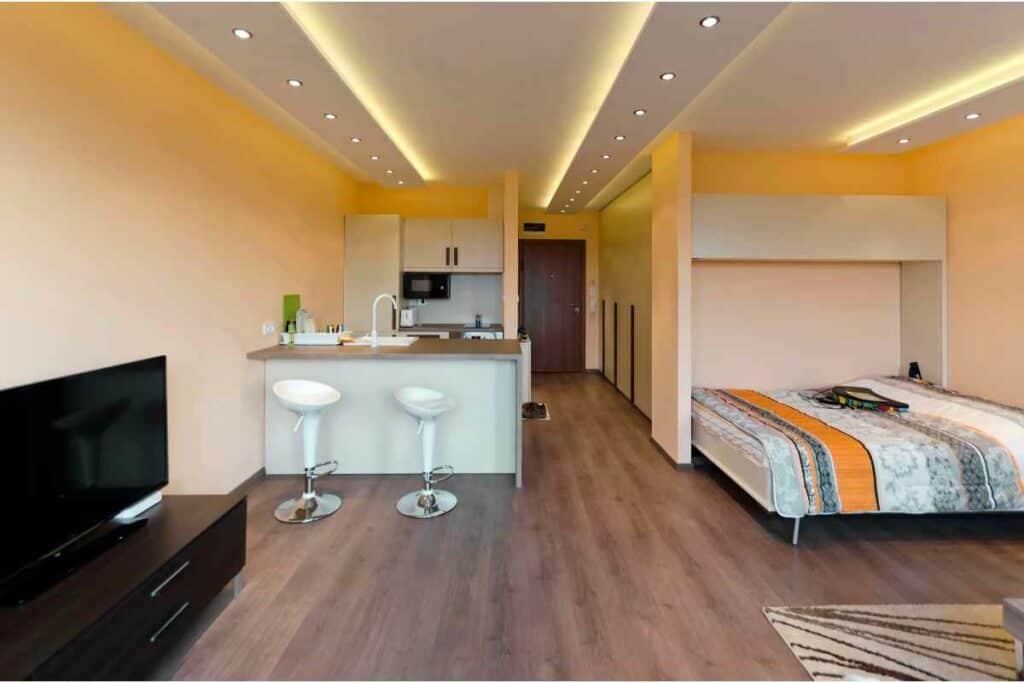
Condotels are known as services that combine the structure of a hotel with a condominium; these are ideal for anyone interested in sound investment opportunities (3). Investors can purchase individual units and rent them out as hotel accommodation. Additionally, each owner is allocated a certain number of days to use their unit while for the rest of the year, the property is owned by the hotel only (3).
Condotels also offer the option of rental returns or entry of a rental pool; owners can offer their units for rent and share their profits with the hotel (3). It is important to remember that since a condotel is both a condominium and profited under a hotel license, the units may be rented on a daily or weekly basis- similar to Airbnb growth (3).
Can A Foreigner Own Land if Married to a National Thai/Friends with a Thai?

While this might sound simple, foreigners cannot co-own land, even if they are married to a local Thai. All of the Thai national’s funds must be used to make the purchase, and she can decide whether to sell the property (3). However, the wife can create some form of joint-ownership where she owns the land but leases it to her husband for 30 years (3).
In some way, Thai friends must also purchase villas in their own name and make an agreement with their foreign friend, stating that they own 49% interest in the villa, but they will not be able to write their name on the deed (3).
Can Foreigners Buy A Condo from an Offshore Company?
There are laws that allow the inheritance of a condominium for foreigners in Thailand. This means that you might as well consider buying a condo from an offshore company. One such example is the British Virgin Islands- a well-established administration (3).
This is an ideal decision as companies do not die; with planning, the person who controls the company shares also owns the condo (3). When wishing to sell the condo, you can transfer the offshore company to the new buyer.
The Importance of a Leasehold
Although under strict restrictions, foreigners cannot directly own property, including villas, they can buy the area for a period of time (3). A leasehold is, therefore, an arrangement that guarantees long-term ownership. If you are a foreigner hoping to buy a villa or house on the land property, you are restricted to a lease for about 30 years (3).
With this lease in hand, the foreigner receives “exclusive possession” of the rental property. However, it is extremely important that the lease be registered under the local land office; this acts as the legal standing of the foreign lessee and guarantees that the foreigner is using an illegitimate Thai Company (3). Upon expiry, the lease can be renewed for another 30 years- making it a 90-year term lease (3).
Some Exceptions for Foreigners
Although it has not been in use, foreigners can have access to land ownership under prescribed investment; the foreigner must have already bought or leased a Phuket villa for up to 400 million THB (3).
Other foreigners who wish to purchase land must promote a business or invest in Thailand to gain privileges (3). The Investment Promotion Act guarantees a foreigner the right to control a Thai business, in turn, allowing them to have control of the company’s land (3).
Investment Opportunities for Buying Property in Thailand
If you are interested in looking for property in different cities in Thailand, then read along to learn about the different options.
Bangkok:

With a consistent array of visitors in the market space, you would recognize that Bangkok has an increasingly growing economy (4). They have become a leader in luxury development. Brands such as Four Seasons and Kempinski are highly recognized and a suitable option for investors on a budget (4).
Known as the capital commercial market, the city is dominant when it comes to travel, business, and commercial identity. You can buy real estate in the city’s Central Business District. The city offers a buy-to-let property where rentals in central Bangkok yield between 4-6%. There are also several residential projects established by international developers.
Phuket:
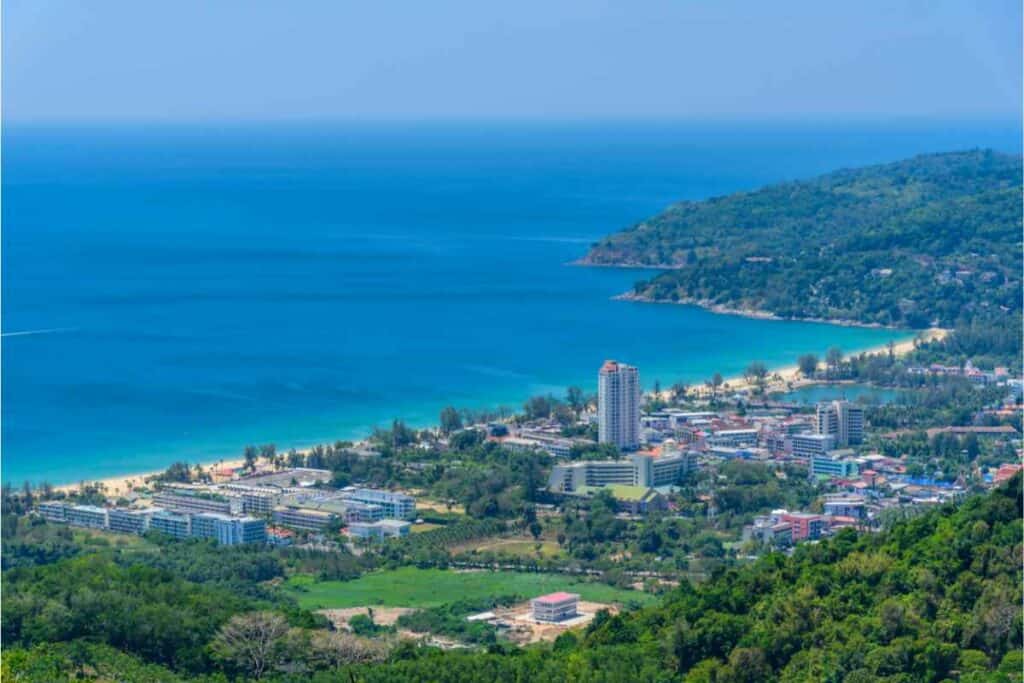
Similar to Bangkok, Phuket is a favorable beach destination. Hotel developments are increasing as it becomes a holiday destination. It is a world-class favorite for foreign buyers as it provides endless facilities from attractions, hospitals, restaurants, shopping areas, marinas, beaches, and hotels (4). Moreover, there are spa and health retreats, golf and recreational sports, and cycling plus fitness activities (4).
Pattaya:
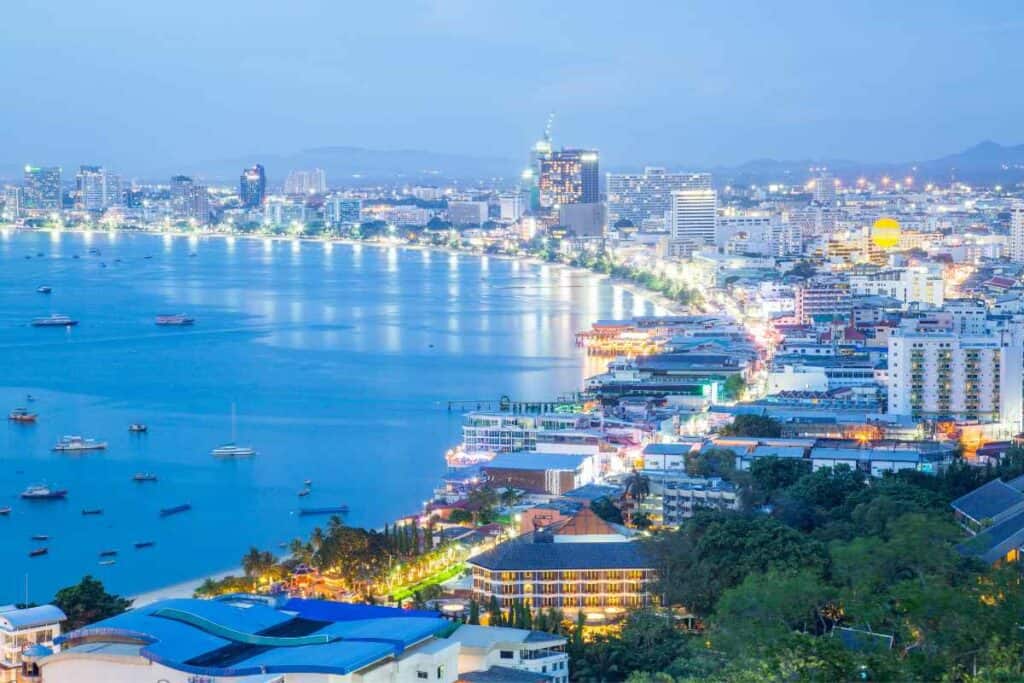
Pattaya is a resort city located in Eastern Thailand. It is a fantastic place for entertainment and leisure. Known as a popular weekend getaway from the main city of Bangkok, it is also benefiting from the trade and commerce of the central business district (2). There are active sales markets and high-quality projects being offered at affordable prices (2).
Chiang Mai:
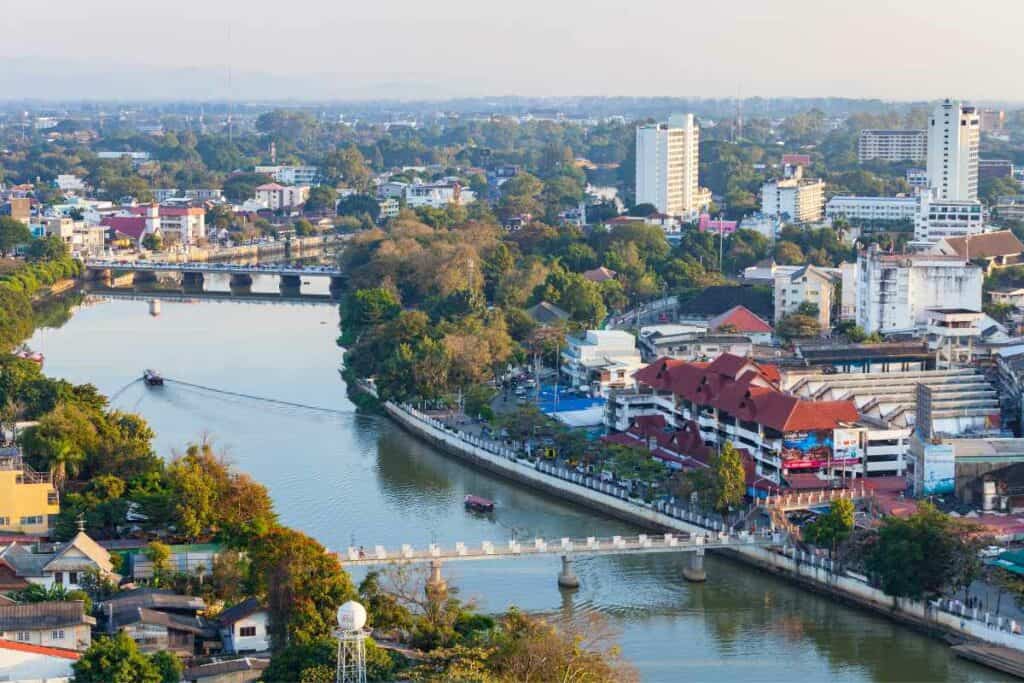
This city is known as the “cultural heart of Thailand.” Located in the Northern area, it is home to unique mountain ranges and a rich heritage (2). You can invest in their real estate market that promises rising sales alongside increasing Chinese travelers (2).
Hua Hin:
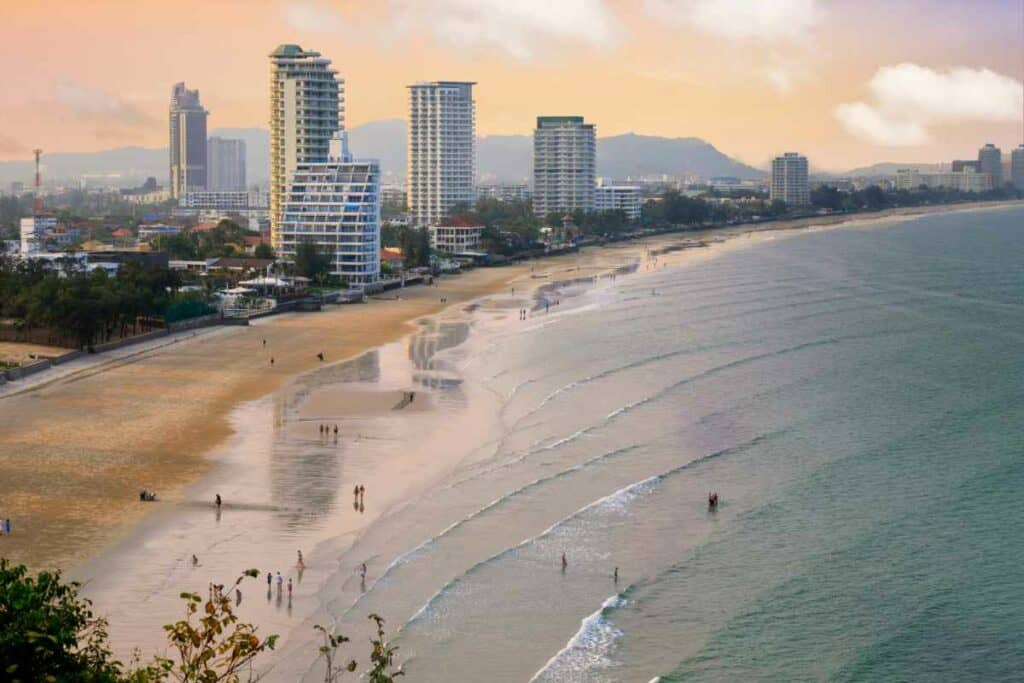
This is known as the country’s oldest beach resort and is located in the Prachuap Khiri Khan Province. A 3-hour drive away from Bangkok, it also has prestigious ties to different generations of families (2). Condominiums, houses, and villas pleasantly complement it. Hua Hin is also an excellent place to invest in as it has low prices; you can easily make a profit and live a great life. The region is also growing in popularity, which means that it will be as big as the other beaches in no time.
Koh Samui:
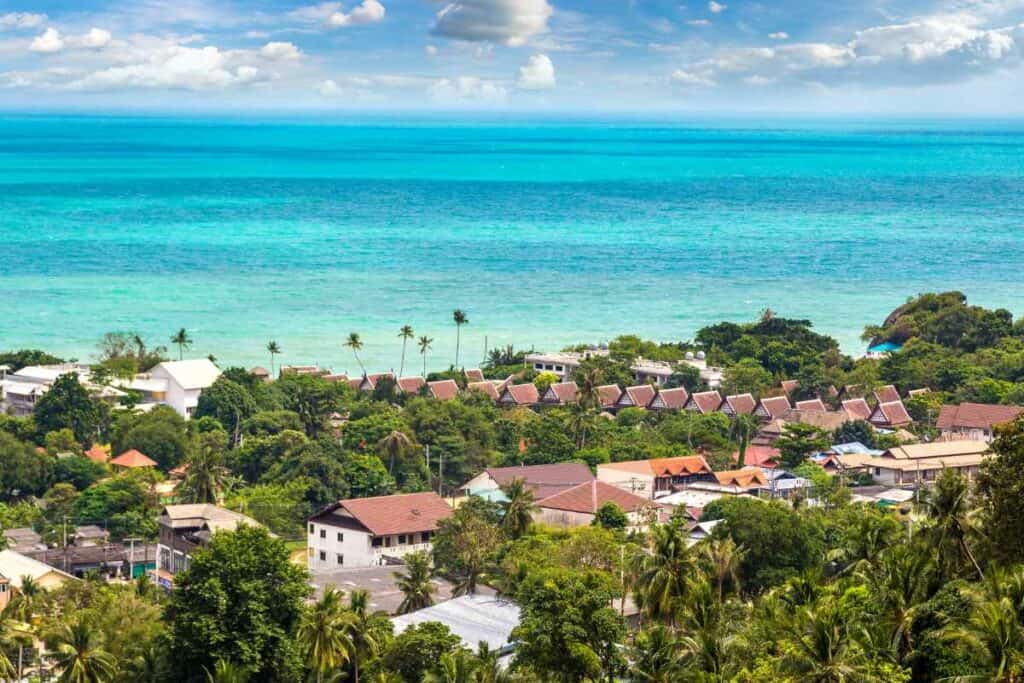
If you are looking to invest in buildings or villa projects at the beach, then Koh Samui is the perfect location that welcomes an estimated amount of 2.8 million tourists from all over the world (2). You can easily set your eyes on a condominium or apartment that best fits your interest. Koh Samui is also full of experienced expats and property agents who can show you the best properties in the market.
Conclusion
Thailand is a place full of opportunities. With millions of locals, it also constitutes for millions of foreign tourists and foreign residents. I mean, it is a place that has all the factors you would consider when moving somewhere; a good economy, beautiful scenery, international produce, delicious cuisines, easy commute, and it carries in itself an adventurous and active lifestyle.
As foreigners, we all desire to buy land elsewhere; a place that is far away from home, a place that we can have to ourselves. Or for business reasons, we hope to create a chain that is unique to our name.
However, in Thailand the law does not allow a foreigner to own or purchase land on their own. Even in the case of living in Thailand, marrying a national, or having a close Thai partnership, you cannot fully own a property. However, you can have guaranteed shares of the company or condominium that you partially own.
To summarize, you can own only up to 49% of a unit area under Thai law. This does not initiate that you can legally be titled properly, but your name will be on a permanent sharing document. The same process exists for branded residents.
In the case of condos, you can invest in some parts of the hotel for a particular amount of time. The best advice is to stick to buying from offshore companies, learn the importance of leasehold, invest in Thai business companies, and look to grow ownership.
Like always, if you want to discover more about Thailand, stay guided with ThaiGuider. You might learn something you never knew about this unique country.
References
1. ThaiEmbassy. Buying Property In Thailand. ThaiEmbassy. [Online] [Cited: December 19, 2021.] www.thaiembassy.com/property/buying-property-in-thailand/.
2. Fresh Editorial. Best Places To Buy Property In Thailand? Fresh Property. [Online] November 2, 2019. freshbangkok.com/best-places-to-buy-property-in-thailand/.
3. Listglobally. The Different Ways Foreigners Can Own Property In Thailand. Listglobally. [Online] July 11, 2019. blog.listglobally.com/different-ways-foreigners-can-own-property-in-thailland/.
4. —. What Makes More Investors Shift To Thailand? Listglobally. [Online] April 3, 2019. http://blog.listglobally.com/what-makes-more-investors-shift-to-thailand/.
THINKING ABOUT A TRIP TO THAILAND?
I am working on a FREE Thailand Travel Guide with a FULL 7 Day Itinerary. Be the first to receive it!
Thank you for signing up.
Something went wrong.
